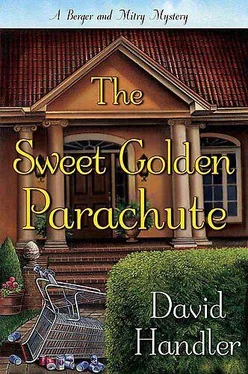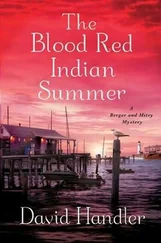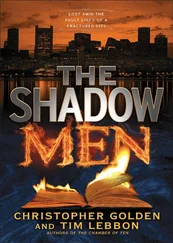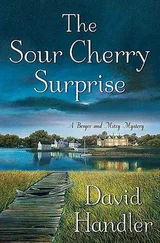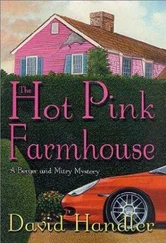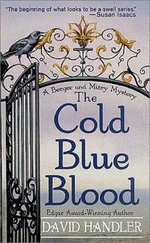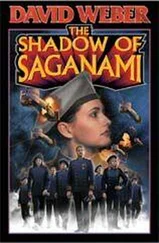David Handler - The sweet golden parachute
Здесь есть возможность читать онлайн «David Handler - The sweet golden parachute» весь текст электронной книги совершенно бесплатно (целиком полную версию без сокращений). В некоторых случаях можно слушать аудио, скачать через торрент в формате fb2 и присутствует краткое содержание. Жанр: Полицейский детектив, на английском языке. Описание произведения, (предисловие) а так же отзывы посетителей доступны на портале библиотеки ЛибКат.
- Название:The sweet golden parachute
- Автор:
- Жанр:
- Год:неизвестен
- ISBN:нет данных
- Рейтинг книги:5 / 5. Голосов: 1
-
Избранное:Добавить в избранное
- Отзывы:
-
Ваша оценка:
- 100
- 1
- 2
- 3
- 4
- 5
The sweet golden parachute: краткое содержание, описание и аннотация
Предлагаем к чтению аннотацию, описание, краткое содержание или предисловие (зависит от того, что написал сам автор книги «The sweet golden parachute»). Если вы не нашли необходимую информацию о книге — напишите в комментариях, мы постараемся отыскать её.
The sweet golden parachute — читать онлайн бесплатно полную книгу (весь текст) целиком
Ниже представлен текст книги, разбитый по страницам. Система сохранения места последней прочитанной страницы, позволяет с удобством читать онлайн бесплатно книгу «The sweet golden parachute», без необходимости каждый раз заново искать на чём Вы остановились. Поставьте закладку, и сможете в любой момент перейти на страницу, на которой закончили чтение.
Интервал:
Закладка:
Mitch filled his bird feeders, then plodded down the sandy path toward the narrow beach, feeling incredibly fortunate to be here. Mitch was the only island resident who wasn’t a Peck by birth or marriage. Most of the Pecks were still down in Hobe Sound for the winter. There were five houses on Big Sister, not counting the stone lighthouse keeper’s house and its decommissioned lighthouse, the second tallest such landmark in New England. There were forty acres of woods, a tennis court, a private beach, a dock where Evan Peck kept his J24 tied up during sailing season. A narrow, quartermilelong wooden causeway connected the island to the mainland. It was Yankee paradise.
Spring didn’t arrive gradually on Connecticut’s Gold Coast-it lurched in. The giant chunks of ice that had floated downriver from the frigid north and washed ashore here still said winter. And yet those slick, shiny harbor seals that were basking out on the rocks in the morning sun positively cried out spring. Mitch watched them for a few minutes before he trained his binoculars on the osprey platforms out in the river on Great Island. He was on lookout duty for The Nature Conservancy. On this particular morning, he happily spotted his first osprey circling slowly around the raised platform. It was a blackish raptor with a white head and a wing span of nearly six feet.
Lowering his glasses, Mitch dutifully marked the date, time and location of the spotting in his notebook, tongue stuck out of the side of his mouth as he wrote. Then he noticed a long black feather stuck in the sand next to him. He reached down and picked it up. It was white on its underside. Not an osprey feather. It was the wing feather of a greater blackbacked gull.
Nevertheless, Mitch tucked it carefully in his pocket for future use.
There was a big wooden bin next to the exit door of the A amp;P where customers could leave donations of canned goods and other nonperishables for Dorset’s Food Pantry. Some guy with a truck would come by every couple of days to pick them up and deliver them to the Fellowship Center of the Congregational church. Lately, that guy with a truck had been Mitch.
He idled in the fire lane while he piled the bags into the back of his kidneycolored Studebaker halfton. Then he headed over to The Works, Dorset’s upscale gourmet food emporium, to pick up the frozen dayold artisan breads that the bakery contributed, along with dozens of those round, doughy things that Dorseteers chose to believe were bagels. From there Mitch rolled his way into the Dorset Street Historic District, with its towering maples and its dignified twohundredandfiftyyearold colonial mansions. Anchoring the south end of the Historic District, set back behind a deep lawn, was Dorset’s stately old Congregational church.
The Congo church-as most everyone called it-was the very embodiment of a smalltown New England meetinghouse. It was white. It was unadorned. There were two full stories of mullioned windows to let in the sunlight. A towering steeple with a working clock and a bell tower topped by a gleaming brass weather vane. It was not, in fact, Dorset’s original Congo church, which burned to the ground in the 1840s. This one had been erected in its place soon thereafter. Supposedly, it was an exact reproduction, inside and out.
The rather sterile Fellowship Center, which had been added on in the 1970s, was connected to the church by an office annex. It had a full kitchen, space for lots of long tables and folding chairs. The center was in constant use by support groups like Alcoholics Anonymous, by singles groups and senior citizens groups. The blood bank was held here. The visiting nurse gave flu shots here. And the Food Pantry was here. It was a known fact that Dorset boasted more millionaires per square mile than East Hampton. But to live here year round, as Mitch did, was to discover that there were plenty of havenots, too. A lot of the men were in seasonal trades like roofing and landscaping. Winters were especially tough. To make ends meet, they relied on the Food Pantry. For those who wanted one, there was also a hot meal.
Mitch pulled into the gravel driveway that looped around back and parked by the kitchen entrance beside Eric Vickers’s battered Ford F150, where Eric was unloading huge baskets of his organically grown potatoes and carrots. Poochie Vickers’s buoyant farmer son was in his early forties, gangly, bonynosed and more than a little geeky. His Adam’s apple always seemed too busy, and his pants invariably fell a good three inches short of his mudcaked work shoes. A big Leatherman multipurpose knife hung in a sheath from his belt. The chunky, shapeless brown sweater he wore had been made by his FrenchCanadian wife, Danielle, using wool from their own sheep. Eric kept his blond hair short, his beard neatly trimmed. His ears he left alone, and the man had to have the lushest ear hair Mitch had ever seen. He looked as if he were part faun. And yet Eric’s ears were not his most notable feature. His eyes were. Eric’s blueeyed gaze was so intense, so lit with positive energy that it bordered on religious zeal. This was why many in Dorset fondly referred to him as the Green Market Messiah.
“You’re looking at the last of it, Mitch,” he declared as Mitch climbed out of his own truck. “Our root cellar is now officially, one hundred percent bare. But not to worry, because today’s the day. As soon as I get home, I’m planting my All Blues. The soil is reeally perfect today. And when the soil is perfect you do not argue with it. You get down on your knees and you dig. Ever eat a blue potato?”
“Uh, I’ve had blue tortilla chips. Do those count?”
“Those are made from corn, Mitch.”
“Okay, then I guess not.”
“You’ve got to try one. They’re my fastest sellers at the Union Square green market. The chef from Savoy grabs them up the second he sees them. God, I love this time of year!” Eric exulted, raising his face to the sun.
The two of them started toting their loads inside for Danielle to parcel out. Danielle was heating up a vat of her bean soup for the folks who were starting to trickle in. She’d also baked several loaves of whole wheat bread. Danielle Vickers shared her husband’s tireless devotion to their farm and their community, but she was much more reserved. Even a bit dour. At times, she almost seemed to have wandered in from an allnight Ingmar Bergman glumfest. Mitch had rarely seen her smile, although some of this was selfconsciousness-her teeth were exceptionally crooked. Danielle had grown up poor. Her father, an itinerant Sheetrocker, had worked only sporadically. Danielle had paid her own way through Bates College, up in Lewiston, Maine, by tending bar nights. It was at Bates that she’d met Eric. She was not particularly tall but she was strongly built. Also pretty shapely, though you had to look awfully hard. She dressed in oversized sweaters and baggy overalls that hid her figure. In fact, she almost went out of her way to look frumpy. Her strawberry blond hair was always in ropy braids or pigtails. And her unflattering wireframed glasses looked as if they’d been filled by an optician in Uzbekistan.
“How goes it, Danielle?” asked Mitch, setting his load down on the counter. Hyper Eric had already bounded back outside for another basket of potatoes.
“It goes, Mitch,” she replied, stifling a yawn. She looked beat. There were dark circles under her eyes. “We’re in the middle of lambing. Four of our ewes delivered last night, so I’m a little short on sleep. But, really, it’s fine.”
“Is the coal cellar unlocked?”
“I’ve already emptied out the freezers for you.”
The frozen baked goods that Mitch collected were stowed in two big freezers down in the dimly lit, intensely creepy cellar under the old church. The cellar was accessed from outside by raising a pair of Bilco metal doors. Like most Bilcos, they locked from the inside. Lem, the church custodian, locked and unlocked the doors for Mitch on Food Pantry days. Mitch didn’t know how Lem made it out of the cellar once they were locked, and he didn’t want to know.
Читать дальшеИнтервал:
Закладка:
Похожие книги на «The sweet golden parachute»
Представляем Вашему вниманию похожие книги на «The sweet golden parachute» списком для выбора. Мы отобрали схожую по названию и смыслу литературу в надежде предоставить читателям больше вариантов отыскать новые, интересные, ещё непрочитанные произведения.
Обсуждение, отзывы о книге «The sweet golden parachute» и просто собственные мнения читателей. Оставьте ваши комментарии, напишите, что Вы думаете о произведении, его смысле или главных героях. Укажите что конкретно понравилось, а что нет, и почему Вы так считаете.
